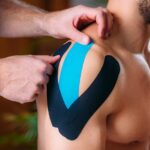When a child complains of persistent bone pain or has trouble with mobility, parents naturally worry about what’s happening beneath the surface. Diagnosing these issues safely and accurately requires specialized expertise that pediatric imaging provides. Designed specifically for children, pediatric imaging uses lower radiation doses and child-friendly techniques to detect bone disorders with precision.
Pediatric Imaging and Bone Health
A child’s skeletal system differs from that of an adult. Bones in children are actively growing, which means they have growth plates, areas of developing cartilage near the ends of long bones. These growth plates can sometimes be mistaken for fractures by those not trained in pediatric radiology. Pediatric radiologists are experts who understand the unique aspects of a child’s anatomy and physiology. They can accurately interpret images to distinguish between normal growth and actual bone disorders or injuries.
Diagnostic Tools for Bone Disorders
Several pediatric imaging techniques are used to evaluate bone health. The specific method chosen depends on the child’s symptoms and the suspected condition. Here are some of the key techniques used:
- X-rays: This is often the first imaging method used to diagnose fractures and other bone abnormalities. Pediatric radiologists make sure to use the lowest possible radiation dose, adjusting it based on the child’s size to minimize lifetime radiation exposure.
- CT Scans: Computed tomography (CT) scans provide detailed images than X-rays and are helpful for examining complex fractures. They are also used to evaluate soft tissues like muscles and ligaments around the bones.
- MRI: Magnetic resonance imaging uses a magnetic field and radio waves to create highly detailed images. An MRI is useful for diagnosing injuries to soft tissues, joints, and the spine.
- Ultrasound: This technique uses sound waves to create images and is also radiation-free. Ultrasound is often used to evaluate soft tissues, identify fluid collections, and assess certain types of bone or joint issues.
These imaging techniques provide valuable insights into the diagnosis and management of bone disorders.
Gentle and Child-friendly Procedures
Making sure a child feels safe and comfortable during an imaging procedure is a fundamental aspect of pediatric radiology. The environment is designed to be child-friendly, reducing anxiety. The imaging equipment is calibrated specifically for younger patients to make sure the lowest effective radiation dose is used.
Technologists trained in working with children use clear, simple language to explain what will happen during the procedure. They may use distraction techniques to help a child stay still, which is necessary for clear images. For certain procedures, like an MRI, sedation may be contemplated if a child is unable to remain still.
Continuous Support for Bone Health
Imaging plays a fundamental role in the evaluation and monitoring of bone health over time. Here are its key uses:
- Detection of Fractures: Radiographs and other imaging methods can identify stress fractures or fractures caused by weakened bones, even in their early stages.
- Evaluation of Bone Growth and Development: For pediatric patients, imaging enables the precise tracking of bone growth, promoting healthy development.
- Monitoring of Treatment Progress: Imaging helps evaluate the effectiveness of treatments, such as medication or therapies, in improving or maintaining bone health.
- Identification of Underlying Conditions: Advanced imaging tools can detect abnormalities or underlying conditions that affect bone health, such as bone infections or tumors.
These imaging applications offer a comprehensive understanding of bone health, enabling accurate diagnosis and informed treatment plans for patients.
Schedule Your Pediatric Imaging Consultation
Pediatric imaging offers a safe and effective means of diagnosing and managing bone disorders in children. With specialized techniques and a focus on patient safety, pediatric radiology is a key tool for maintaining your child’s health. If your child is experiencing symptoms of a bone disorder, contact a trusted provider near you to schedule your consultation today.











